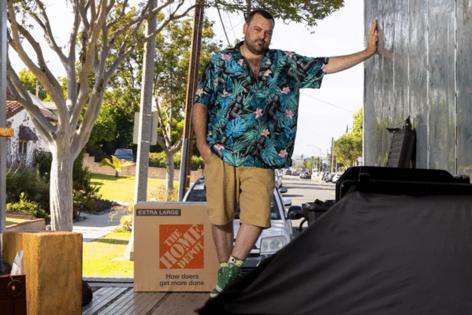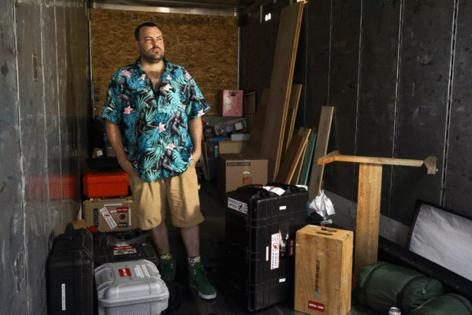Hollywood's exodus: Why film and TV workers are leaving Los Angeles
Published in Business News
Los Angeles has long been a magnet for those chasing their big break in film and TV, drawn by the allure of creative fulfillment and fame. But conversations about a growing exodus are getting louder, as escalating housing costs and dwindling career opportunities push many to pursue their dreams elsewhere.
The city’s entertainment industry workforce has been rocked by a series of unprecedented shocks, from a global pandemic to last summer’s double labor strikes by writers and actors. As the streaming boom has faded, entertainment companies have hemorrhaged jobs, and networks, studios and streamers have pared back their programming slates. With the industry in the grips of a slowdown and the cost of living in L.A. still high, the motto for those struggling to remain in the city has become “Survive till ‘25,” in hopes of a rebound next year.
But many have simply been unable, or unwilling, to continue to tough it out in a city where rents have risen and home prices linger at an all-time high, up 6% over last year alone. With a potential strike of 60,000 people in the crew members’ union keeping the industry on edge, not to mention the existential threat of artificial intelligence to creative jobs, the uncertainty has driven a growing number of film and TV workers to seek stability elsewhere.
Some have left for work in places like Atlanta and New Mexico, which have lured productions out of L.A. with generous tax incentives. Others have given up on the entertainment business altogether and are trying to forge new careers. Whether they moved out of choice or desperation, uprooted Hollywood workers have inevitably coped with unexpected challenges, both financially and emotionally.
Here are three of their stories:
Robby Piantanida, 36
When it comes to film and TV production, Robby Piantanida can do pretty much everything, from cinematography to editing to directing to visual effects to scoring. “I’m a jack-of-all-trades kind of guy,” he says. These days, though, it seems like doing everything is still not enough to stay afloat.
In the nine years since he moved to L.A., Piantanida has earned an array of credits on documentaries, music videos and film and TV projects. He edited a PBS documentary on L.A. art dealer Jeffrey Deitch and a short doc called “Fertile Ground,” about food insecurity in Mississippi, that won a regional Emmy in 2021. Recently he served as director of photography on the series “How Music Got Free,” executive produced by Eminem and LeBron James and now streaming on Paramount+, and as the cinematographer on the indie film “Dogleg,” the debut release from L.A.’s Brain Dead Studios, which is now on Mubi.
But recently, like so many in Hollywood, Piantanida has found himself caught in the industry’s downdrafts. This month, faced with shrinking work opportunities and the soaring cost of living in L.A., Piantanida, his wife and their 2-year-old daughter packed up and moved back to his parents’ place in his native Tyler, Texas, to regroup and save money while they figure out their next move. “If we didn’t have this kind of family support, I have no idea what we would have done,” he says.
Since early 2021, Piantanida and his family had been renting a three-bedroom house in Alhambra for $2,626 a month. But during the pandemic, his wife, who has a background in production and art design, was laid off from her job at a talent agency and lost her six-figure salary. Opportunities grew more scarce for Piantanida, and his annual income dropped from around $150,000 at its peak to closer to $80,000.
...continued
©2024 Los Angeles Times. Visit at latimes.com. Distributed by Tribune Content Agency, LLC.












Comments